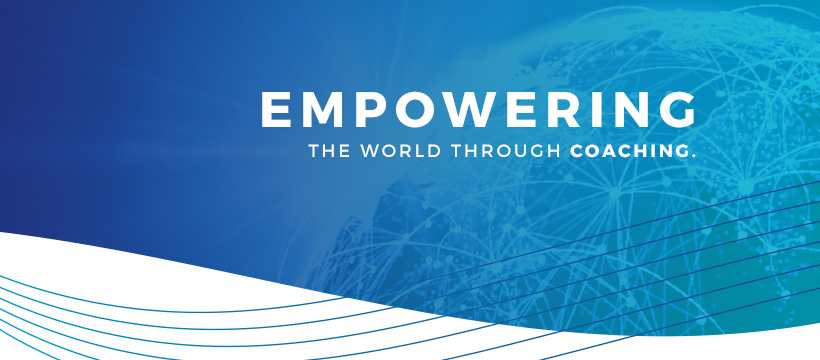The organization lies on a treasure: its managers and leaders interpersonal skills. When soft skills models are vanishing, performance is dropping,
the organization is collapsing,
and employees run away.
How is your soft skill asset being valued within your organization?
How many internal management skills transmission programs are being run to new promoted managers? Management positions are distributed over the years … ..thanks to seniority, or somewhat at random. Some managers will be noticed for their soft skills. They will then add real value to their company. Others will never know they don’t know, leaving behind them a less unforgettable footprint.
And… this is it.
Management impacts can be huge and do contribute to heavy results for the company: both positive or negative. Actually, the following performance of the entity lies in the motivation or demotivation of the people.
Motivation is directly linked to sense, purpose, common values, recognition, feedback, objectives settlement, support.
Demotivation will carry troubles, depression, overwork, boredom, burn-out, ….
How much does it cost your organization to make wrong recruitment when managers are not competent? How much does burn-out cost per year to your company? – Costs of poor management are disengagement, poor results, sick leave, replacements, resignations followed by new recruitments, loss of know-how. How many $ to be lost?
The benefits of performing management are productivity, creativity, innovation, empowerment, mutual enrichment, talent retention. How much $ to be gained?
By transmitting internal soft skills knowledge and allowing managers to benefit from each other, you may enrich the knowledge of the most efficient ones and create a cohort of best practices within your organization.
1. It takes time to become a “First in class manager”: why not saving some time? The art of managing a team is something which can hardly be acquired (only) at school: it is learned for the most part of the managers through learning by doing. It’s a human adventure with a big “H”, well… for those who see it as such. The organization relies on a wealth made of interpersonal skills of endless replacements of managers. However, few managerial mentoring (or transmission) programs carry out the learning of these soft skills which add so much value to your company. Some young managers may feel disempowered or abandoned by lacking of mentors. If so, they may tend to be more stressed, which may conduct to bad behaviors, which may lead to poor performances, psychological risks, and dismisses.
- How much does it take for your company to grow a “good” manager? Do you really have an idea? How is soft power shared between good practitioners and others?
- How are role models valued? What is undertaken with “not good practitioners” and how?
- How is the impact on the teams handled?
What is your “soft power operational model” to define optimal managers? What is the basis of manager selection (including external recruitment )?
2. It costs money to select the wrong managers: why not saving money?
A diploma does not make a good manager and a performing manager does not necessarily own a (good) diploma of management: Technical experts coming from the best schools or universities will not be necessary the best in class manager.
So how to identify them without considering educational background? What criteria should be taken into consideration? What is your selection process? What is really missing today?
In case it looks challenging to identify them, what does it make so? How to overcome this?
- What does this say about your organization?
- What direct and concrete benefits will you see in changing your process?
- What needs to be put in place to make these practices effective and efficient? How will they be valued?
Courage is a virtue in business: what about rewarding soft skills management for what they are, as results and technical achievements are rewarded? By promoting collective soft skills transmission, network, each other preoccupation and roles would allow understandings and sharings versus ego-individuals. Organizational sustainability could also benefit from the process.
What exactly does your organization want? What is missing to support the positive models? 3\. Valuable employees leave their company when the soft project asset collapses; why not retaining your employees?
How true soft power owners are being rewarded within your organization?
Two years before retiring, high skilled managers are sometimes moved to “high-challenging positions” (staff changes, welding of twisted teams, cross-functional projects, etc.), because, yes, they still are eager to do their best, and they are used by the organization to deliver with effectiveness.
Ok; is that it for your company? You are in a 2 years run, ready to lose their soft strengths at the end of the period?
Once the top managers have left, new generations will have to start from scratch, an experiment in turn. What a loss!
All this massive knowledge and practices are lost on the side of the crossroads of generations. How much does it exactly cost to the company?
These hidden diamonds boost your business: what are you going to do with it? What would you gain by identifying the referents of model attitudes, also called “servant leaders”, or mentor coaches?
Soft skills knowledge sharing within your organization is a real opportunity to grow networks and instill a contributing culture. It will consolidate what makes your company unique, the reason why your employees have joined, and why they will stay.
Never underestimate the price of leadership and management soft power. Never underestimate the adding value of cutting a diamond.
Avtorica članka: Armelle Stoltz, PCC
 After 15 years of experience in HR (Insurance, automotive industry), I run for a professional coaching program (CPC) in 2011 at Corporate Coach Academy (ACTP-ICF ) in Malaysia.
After 15 years of experience in HR (Insurance, automotive industry), I run for a professional coaching program (CPC) in 2011 at Corporate Coach Academy (ACTP-ICF ) in Malaysia.
Expatriate for 6 years, Mentor Coach, Coach Teacher, External career coach, Intercultural coach, then Internal Coach in the Energy Industry with more than 25 nationalities, I have set my own company “Sens & Résonance” back to France 5 years ago.
My next step is to grow a higher helicopter view.

